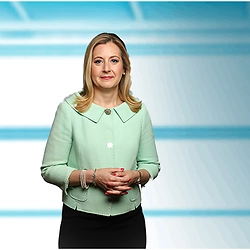Will The Skyrocketing Growth of TCPA Litigation Slow?
If your business makes sales telephone calls or sends text messages, you need to carefully consider the federal Telephone Consumer Protection Act (“TCPA”). The TCPA creates significant litigation risk; during a three-year period, businesses paid over $200,000,000 to settle TCPA lawsuits. The impact is widespread, with at least 40 industries hit by TCPA litigation. Subject to limited exceptions, the TCPA prohibits the use of an automated telephone dialing system (“ATDS”) to place calls and text messages to cell phones unless the called party has provided prior express written consent. The TCPA places similar prohibitions on prerecorded telemarketing calls and text messages regardless of whether or not an ATDS is used.
TCPA litigation surged after the Federal Communications Commission (“FCC”) issued a sweeping order in 2015 that set forth unrealistic compliance standards and created heightened business exposure to litigation. In response, several trade groups sued the FCC to challenge elements of the order. On March 16, 2018, the D.C. Circuit Court of Appeals granted partial relief.
The FCC order had created an exceptionally broad definition of ATDS to include any telephone equipment with the potential capacity to generate and dial random or sequential telephone numbers, even if it is not in fact programmed or used for such purposes. Under this FCC definition, it seemed even an iPhone could be an ATDS, and one dissenting FCC commissioner lamented that callers were only safe from TCPA liability if they used rotary dial phones. The Court rejected the FCC’s expansive definition. With this decision, courts will revert back to the previous definition of an ATDS: (1) whether the telephone equipment at issue has the present capability to automatically dial random or sequential numbers; and (2) whether human intervention is needed to dial a number.
The Court also struck down the FCC’s “one-call standard” that sought to address unintentional violations of the TCPA that arise where, unbeknownst to the caller, their phone number has been reassigned to a third party. The FCC order allowed a one-call exception, with any subsequent call constituting a TCPA violation based on the theory that the caller would know the number was reassigned after the first call. This theory assumes that the called party answers the call (which is typically not the case when a call is unexpected) and makes the caller aware that he or she is not the intended party. The Court did take notice of a possible solution in the FCC’s recent efforts to generate a “comprehensive repository” of reassigned numbers, which callers could use to avoid calling nonconsenting individuals with reassigned numbers.
However, the Court upheld the FCC directive that allows subscribers the freedom to revoke consent to telemarketing calls and texts in any way “clearly expressing a desire to receive no further messages.” In other words, businesses may not limit the manner in which revocation may occur, such as communication to a central phone number or e-mail to ensure tracking of such revocations. The Court did state that its decision had no effect on customers agreeing beforehand on how they may revoke consent. Businesses would be wise to include such terms in their consent documents.
Finally, the Court upheld the FCC’s limited interpretation of the exception for healthcare calls to permit calls “for which there is an exigency” and “a healthcare treatment purpose,” such as appointment and exam confirmations and reminders, wellness checkups, and prescription notifications. A broader interpretation had been sought to cover any HIPAA covered call.
Burke, Warren attorneys are available to answer any questions regarding this recent court decision and to help structure programs to reduce their TCPA liability. Please contact Danielle Gould (dgould@burkelaw.com or 312/840-7070); John Darrow (jdarrow@burkelaw.com or 312/840-7003); Shana Shifrin (sshifrin@burkelaw.com or 312/840-7124); or Josh Cauhorn (jcauhorn@burkelaw.com or 312/840-7055) with any questions regarding these issues.
Related Professionals
- Partner
- Partner
- Partner
Related Practices & Industries
Sign-Up
Subscribe to receive firm announcements, news, alerts and event invitations.



